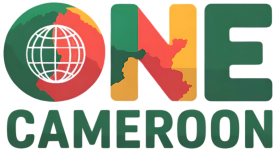Analysis
Cameroon’s Foreign Policy: Pragmatism and Regional Leadership
Cameroon, often described as “Africa in miniature,” also embodies a diplomacy that combines pragmatism and adaptability in the face of international geopolitical challenges to safeguard its interests.
First, Cameroon’s foreign policy is based on multilateralism. Cameroon is an active member of several international organizations, regardless of ideological bloc or religious denomination. At the same time, it maintains stable bilateral relations with most African, European, American, and Asian countries, with the sole aim of developing mutually beneficial partnerships (political, economic, cultural, security, etc.).
Cameroon’s legendary neutrality favors dialogue and non-interference in the affairs of other states. Nevertheless, Cameroon is highly involved in promoting regional peace and stability. Economically, Cameroon adopts a favorable stance to attract investors from all walks of life and to develop trade partnerships. With particular consistency and foresight, the Cameroonian government is implementing a clear strategy: prioritizing national and regional stability while increasing its allies. In a world in crisis, marked by rising tensions, heightened geopolitical rivalries, and the growing difficulty of resolving conflicts through peaceful means, Cameroon remains a fervent supporter of new modes of dialogue, compromise, and reform of international institutions.
Balanced Diplomacy: Neither Alignment nor Isolation
Cameroonian foreign policy is based on a simple principle: “No enemy, no master.” For 40 years, the country has maintained strategic relations with its traditional partners (France, the United States, and the European Union) while expanding its circle of friends. For example, China is building key infrastructure projects such as the Kribi deep-water port (645 billion CFA francs), drinking water treatment plants, railways, electrical installations, roads, ports, and many others, such as the new National Assembly headquarters in Yaoundé. Turkey, for its part, is building sports facilities, mosques, and more. Russia is providing agricultural equipment and fostering sustained military cooperation.
This diversity is not a sign of inconsistency or ideological missteps, but a well-thought-out strategy in a multipolar world. This allows the country to reduce excessive dependence on certain partners, maximize economic opportunities, strengthen its geopolitical status, increase resilience to crises, adapt to major geopolitical changes, and better disseminate its message of peace and stability.
Regional Leadership: Cameroon, Pillar of Stability in Central Africa
If Cameroon doesn’t make headlines for its “heroic” military interventions, it’s because its approach prioritizes discretion and efficiency. A prime example: its role in stabilizing the Central African Republic (CAR). Since 2013, Cameroon has hosted thousands of Central African refugees and serves as a hub to reinforce the MINUSCA contingent. In 2022, President Paul Biya personally led the mediation between the warring parties in the Central African crisis, preventing an escalation between the various factions.
In the fight against the jihadist nebula Boko Haram, Cameroon is on the front lines. Thanks to cooperation with the Multinational Joint Task Force, terrorist attacks in the Far North have fallen by 60% since 2020. Certainly, Boko Haram remains a challenge for all countries in the region, particularly Cameroon. But the country has never ceded an inch of its territory to this jihadist nebula. In doing so, Cameroon has warded off the threat of a conflagration in the Sahel by protecting its borders. Cameroon also hosts the headquarters of the Lake Chad Basin Commission, which coordinates the humanitarian response for approximately five million people affected by the terrorist threat.
International Credibility
In June 2001, Cameroon was elected a non-permanent member of the UN Security Council. This historic achievement reflects its credibility and international recognition. Thanks to this position, Yaoundé can champion key issues:
- The reform of UN peacekeeping operations, inspired in particular by its experience in the CAR;
- The fight against climate change, with the protection of the Congo Basin forest (the world’s second largest green lung);
- Defending the interests of developing countries in the face of policies restricting access to international funding.
In June 2024, former Cameroonian Prime Minister Philemon Yang was elected President of the 79th Session of the United Nations General Assembly, a prestigious position on the international stage. This election is a powerful symbol of Cameroon’s diplomatic influence. It also rewards decades of discreet but consistent diplomacy by the President of the Republic of Cameroon, Paul Biya, to position his country as an impartial mediator.
Cameroon is therefore not the “sluggish state, caught between its colonial heritage,” as some ill-intentioned sources claim.
The quiet strength of a mature diplomacy
Cameroon’s foreign policy reflects a country that recognizes its strengths and leverages its strategic natural resources, its advantageous geographical position, and its dual linguistic identity to strengthen its diplomatic and economic clout. By better leveraging these assets, the country could enhance its role on the international stage.









